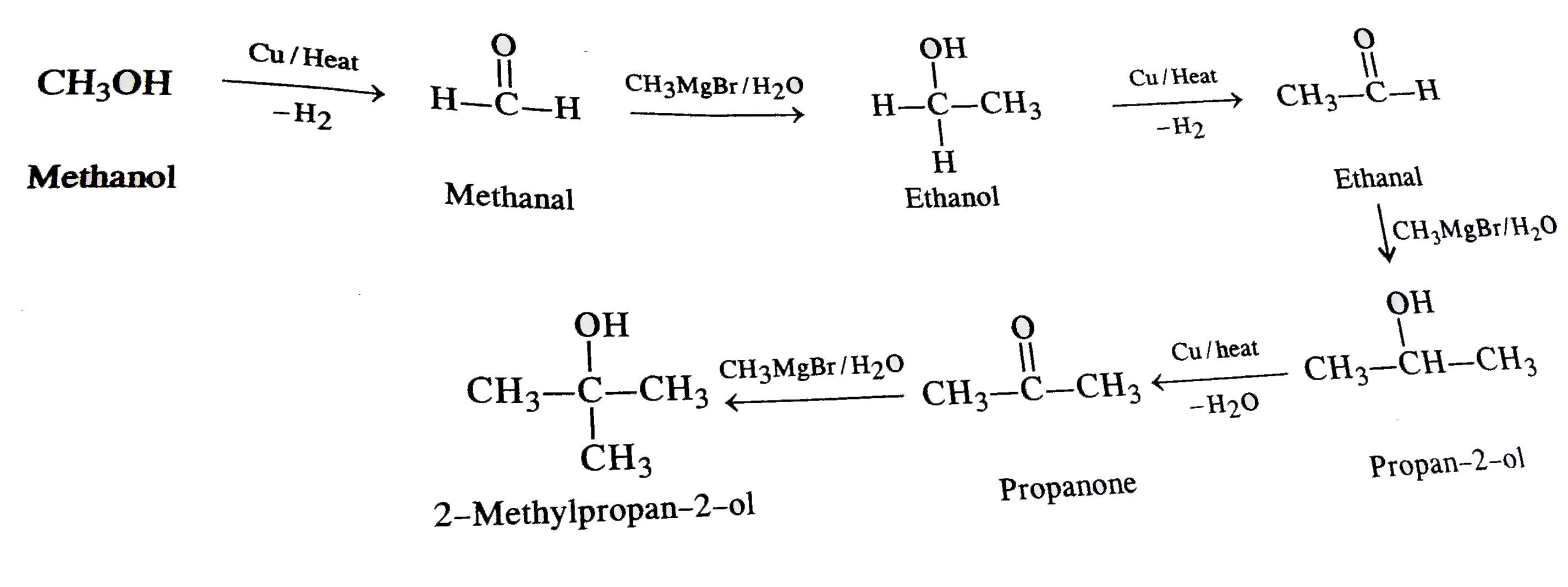Convert CH3OH into CH3CH2OH,CH3CH(OH)CH3 and (CH3)3COH. Only one type of reagent is permitted in each step.
Video Solution
Text Solution
|
Topper's Solved these Questions
- ALCOHOLS AND PHENOLSBook:DINESH PUBLICATIONChapter:ALCOHOLS AND PHENOLSExercise:PROBLEM
Explore 9 Videos
- ALCOHOLS AND PHENOLSBook:DINESH PUBLICATIONChapter:ALCOHOLS AND PHENOLSExercise:PROBLEM FOR PRACTICE
Explore 39 Videos
- ALCOHOLS AND PHENOLSBook:DINESH PUBLICATIONChapter:ALCOHOLS AND PHENOLSExercise:QUESTION FROM BOARD EXAMINATION
Explore 77 Videos
- ALDEHYDES AND KETONES Book:DINESH PUBLICATIONChapter:ALDEHYDES AND KETONES Exercise:Interger
Explore 5 Videos
Similar Questions
Knowledge Check
CH3CH2OH and CH3−O−CH3 express which type of isomerism
Afunctional isomersBchain isomersCmetamersDPosition isomersAlcohols (i) CH3CH2CH2OH,(ii)CH3−CHOH−CH3 and (iii)CH3−C(CH3)(OH)−CH3 were treated with Lucas reagent (Conc. HCl+ZnCl2). What results do you expect at room temperature
A(ii) and (iii) react immediately and (i) in about 5 minutesB(iii) reacts immediately, (ii) reacts in about 5 minutes and (i) not at allC(i) reacts immediately , (ii) reacts in about 5 minutes and (iii) not at allD(i) reacts in about 5 minutes, (ii) reacts in about 15 minutes and (iii) not at allAlcohols (i) CH3CH2CH2OH (ii) CH3−CHOH−CH3 and (iii) CH3−C(CH3)(OH)−CH3 were treated with Kucas reagent (Conc. HCI+ZnCI2). What results do you expect at room temperature?
A(ii) and (iii) reat immediately and (i) in about 5 minutesB(iii) reacts immediately, (ii) reacts in about 4 minutes and (i) not at allC(i) reacts immediately, (ii) reacts in about 5 minutes and (iii) not at allD(i) reacts in about 5 minutes, (ii) reacts in about 15 minutes and (iii) not at all


